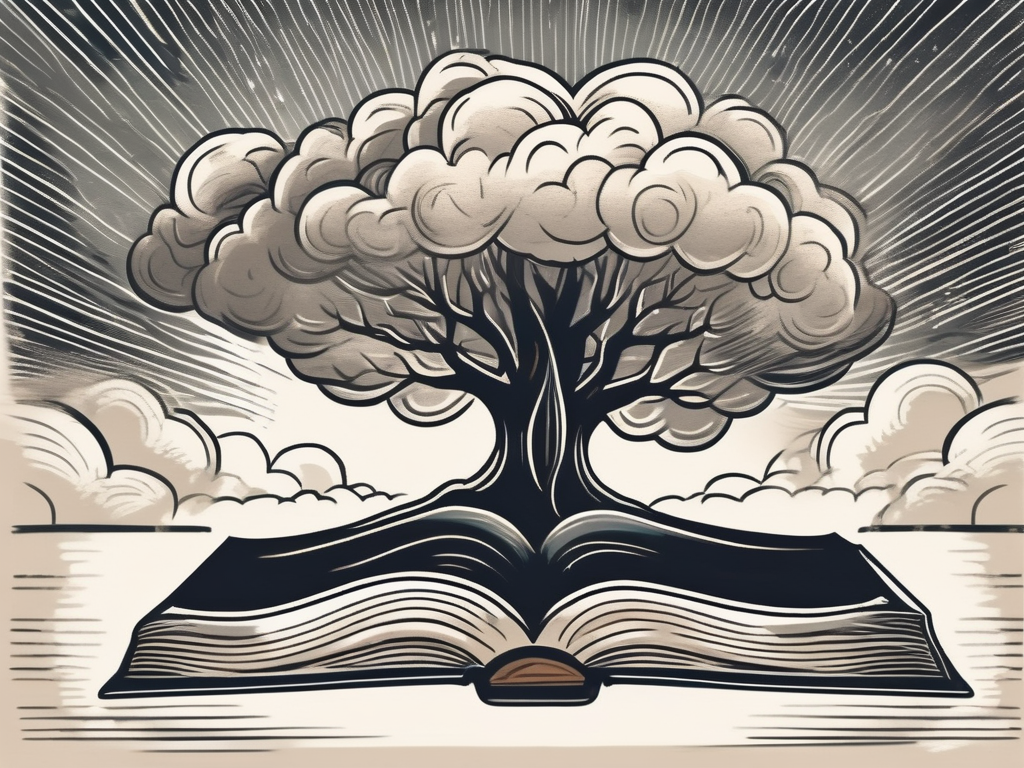Are you feeling a little lost on your spiritual journey? Don’t worry, you’re not alone. Understanding spirituality and all its different aspects can be quite overwhelming. But fear not, because we’ve got you covered with the ultimate guide to spiritual information. In this article, we’ll delve into the basics of spirituality, explore the different spiritual paths and beliefs, discuss spiritual practices and rituals, and even touch on the role of spirituality in personal development. So, sit back, relax, and let’s embark on this enlightening journey together.
Understanding the Basics of Spirituality
When it comes to spirituality, there’s no one-size-fits-all definition. It encompasses a broad perspective that can manifest differently for each individual. Spirituality can be seen as a deep connection to something greater than ourselves, whether it be a higher power, the universe, or simply the essence of life itself. It’s a personal and intimate relationship that goes beyond religious beliefs and practices.
But what exactly does it mean to have a deep connection to something greater? It means recognizing that there is more to life than what meets the eye. It’s about acknowledging the interconnectedness of all things and understanding that we are part of a larger cosmic tapestry. This awareness can bring a sense of awe and wonder, as we marvel at the beauty and complexity of the world around us.
Spirituality is not limited to a specific set of rituals or practices. It is a way of being, a way of living in alignment with our deepest values and beliefs. It invites us to explore the depths of our own being, to question the meaning of existence, and to seek answers beyond the realm of the tangible.
So why is spirituality important? Well, it plays a vital role in our daily lives. It helps us find meaning and purpose, provides guidance during challenging times, and offers a sense of inner peace and fulfillment. Spirituality is like the compass that guides us on our journey, reminding us of our values and helping us navigate the twists and turns of life.
When we are connected to something greater, we tap into a wellspring of wisdom and strength that can sustain us through difficult times. It gives us a sense of perspective, reminding us that there is more to life than our individual struggles and successes. This broader perspective can bring a sense of peace and contentment, as we realize that we are part of something much larger than ourselves.
Moreover, spirituality can also enhance our relationships with others. When we cultivate a deep connection to something greater, we become more compassionate, empathetic, and understanding. We recognize the inherent worth and dignity of every individual, and we strive to treat others with kindness and respect. This can lead to more fulfilling and meaningful connections with those around us.
Furthermore, spirituality can inspire us to live in harmony with the natural world. When we recognize the interconnectedness of all things, we develop a deep reverence for the Earth and its ecosystems. We become stewards of the environment, taking actions to protect and preserve the planet for future generations.
In conclusion, spirituality is a multifaceted concept that goes beyond religious beliefs and practices. It is about cultivating a deep connection to something greater, finding meaning and purpose in life, and living in alignment with our deepest values. It provides guidance, inner peace, and fulfillment, and enhances our relationships with others and the natural world. So, embrace your spirituality and embark on a journey of self-discovery and growth.
Different Spiritual Paths and Beliefs
In exploring spirituality, it’s important to acknowledge the diverse range of paths and beliefs that exist. One of the most well-known categories is Eastern spirituality, which includes practices such as Buddhism, Hinduism, and Taoism. These traditions emphasize self-discovery, enlightenment, and the interconnectedness of all things.
Eastern spirituality is a rich tapestry of ancient wisdom and practices that have been passed down through generations. Buddhism, for example, teaches the Four Noble Truths and the Eightfold Path as a means to attain enlightenment and liberation from suffering. Hinduism, with its vast pantheon of gods and goddesses, offers a multitude of paths to spiritual realization, from devotion to meditation. Taoism, on the other hand, emphasizes living in harmony with the Tao, the underlying principle of the universe.
On the other hand, Western spirituality encompasses religions such as Christianity, Judaism, and Islam. These faiths highlight the importance of faith, morality, and devotion to a divine or transcendent being. Western spirituality often involves rituals, prayer, and communal worship.
Christianity, with its belief in Jesus Christ as the Son of God and the savior of humanity, offers a path of redemption and salvation through faith and good works. Judaism, rooted in the covenant between God and the Jewish people, emphasizes the importance of ethical living and the study of sacred texts. Islam, with its teachings of the Quran and the life of Prophet Muhammad, calls for submission to the will of Allah and the practice of the Five Pillars of Islam.
In addition to these well-established traditions, there are also indigenous and pagan spiritualities. These belief systems are rooted in the connection to nature, ancestral wisdom, and the recognition of multiple gods or goddesses. They celebrate the cycles of life, the seasons, and the interconnectedness of all living beings.
Indigenous spiritualities vary greatly depending on the culture and region, but they often emphasize the sacredness of the land, the importance of community, and the honoring of ancestors. Pagan spiritualities, on the other hand, draw inspiration from pre-Christian European traditions and often involve the worship of nature deities, the practice of magic, and the observance of seasonal festivals.
Whether one follows an Eastern, Western, indigenous, or pagan spiritual path, the journey towards spiritual growth and understanding is a deeply personal one. It involves exploring one’s own beliefs, values, and experiences, as well as engaging with the teachings and practices of a particular tradition. Ultimately, spirituality is a quest for meaning, purpose, and connection that transcends cultural boundaries and speaks to the universal human longing for something greater than ourselves.
Spiritual Practices and Rituals
Practices and rituals are an integral part of spiritual journeys. They provide a framework for self-reflection, inner growth, and connection to the divine. Meditation and mindfulness are popular practices that help individuals cultivate a calm and focused mind, promoting a sense of peace and spiritual awareness.
Through the practice of meditation, individuals are able to quiet their minds and enter a state of deep relaxation. This allows them to detach from the distractions of everyday life and connect with their inner selves. By focusing on their breath or a specific mantra, they are able to achieve a heightened sense of awareness and tap into their spiritual essence.
Mindfulness, on the other hand, involves being fully present in the moment and paying attention to one’s thoughts, feelings, and sensations without judgment. This practice encourages individuals to observe their experiences without getting caught up in them, allowing for a greater sense of clarity and insight.
Prayer and worship are central to many spiritual traditions. They provide a means of expressing gratitude, seeking guidance, and connecting with the divine. Whether it’s reciting prayers, attending religious services, or engaging in devotional acts, these practices bring solace and deepen spiritual bonds.
Prayer is a way for individuals to communicate with the divine and express their deepest desires, hopes, and fears. It is a form of surrender, allowing individuals to acknowledge their limitations and place their trust in a higher power. Worship, on the other hand, involves honoring and praising the divine through rituals, ceremonies, and communal gatherings.
Some spiritual paths also incorporate fasting and pilgrimage as a way to purify the body and soul. Fasting allows for introspection and self-control, while pilgrimages offer the opportunity to visit sacred sites, connect with spiritual history, and experience personal transformation.
Fasting is a practice that involves abstaining from food or certain types of food for a set period of time. It is often done as a form of spiritual discipline and purification. By denying themselves physical nourishment, individuals are able to focus their attention inward and gain a deeper understanding of their own desires and attachments.
Pilgrimages, on the other hand, are journeys undertaken to sacred places or sites of religious significance. They are seen as a way to deepen one’s spiritual connection and seek divine guidance. The act of traveling to these sacred sites is believed to be transformative, as it allows individuals to step out of their everyday lives and immerse themselves in a spiritual atmosphere.
During a pilgrimage, individuals may engage in various rituals and practices, such as prayer, meditation, and acts of devotion. These activities help to create a sense of sacredness and facilitate a deeper connection to the divine. The experience of being in the presence of a sacred site and participating in these rituals can be profound and life-changing.
The Role of Spirituality in Personal Development
Spirituality has a profound impact on personal development, influencing our emotional, mental, and physical well-being. It provides a foundation for cultivating a positive mindset, managing stress, and finding inner peace.
Emotionally, spirituality helps us develop a greater sense of compassion, empathy, and gratitude. When we embrace spirituality, we open ourselves up to the interconnectedness of all beings and the world around us. This awareness allows us to see beyond our own needs and desires, and to truly understand and empathize with others. It fosters a deep sense of compassion, enabling us to extend kindness and support to those in need. Additionally, spirituality teaches us to appreciate the small blessings in life and to cultivate a sense of gratitude for all that we have. This shift in perspective can greatly enhance our emotional well-being and overall happiness.
Mentally, spirituality can enhance our mental health by promoting self-awareness, acceptance, and resilience. Through spiritual practices such as meditation and self-reflection, we gain a deeper understanding of ourselves and our patterns of thinking and behavior. This self-awareness allows us to identify and challenge negative thought patterns, replacing them with more positive and empowering beliefs. Spirituality also teaches us the importance of acceptance, both of ourselves and of others. By accepting ourselves fully, flaws and all, we can let go of self-judgment and embrace a greater sense of self-love and self-compassion. This acceptance extends to others as well, fostering more harmonious relationships and a greater sense of peace. Furthermore, spirituality provides us with a sense of resilience, allowing us to bounce back from challenges and setbacks with greater ease. It teaches us to trust in a higher power or universal force, knowing that we are supported and guided even in the face of adversity.
In terms of physical health, spirituality encourages practices such as mindfulness, meditation, and exercise, which can have beneficial effects on our overall well-being. When we engage in mindfulness and meditation, we cultivate a state of present-moment awareness, allowing us to fully experience and appreciate each moment. This practice not only reduces stress and anxiety, but also improves our ability to focus and concentrate. Additionally, spirituality often emphasizes the importance of taking care of our physical bodies. Regular exercise, whether it be through yoga, walking in nature, or engaging in a favorite sport, not only improves our physical fitness, but also releases endorphins, boosting our mood and overall sense of well-being. Furthermore, spirituality encourages us to listen to our bodies and honor our individual needs, promoting a balanced and healthy lifestyle.
So, there you have it! The ultimate guide to spiritual information. We’ve explored the basics of spirituality, delved into different spiritual paths and beliefs, discussed spiritual practices and rituals, and touched on the role of spirituality in personal development. Remember, spirituality is a unique and personal journey, so embrace what resonates with you and allow it to guide you on the path of self-discovery and growth. May your spiritual journey be filled with wisdom, peace, and endless possibilities.
But wait, there’s more! Let’s dive deeper into the topic of spirituality and personal development. Did you know that spirituality can also have a profound impact on our sense of purpose and meaning in life? When we connect with something greater than ourselves, whether it be a higher power, nature, or the universe, we often experience a deep sense of purpose and a feeling that our lives have meaning. This sense of purpose can serve as a driving force, motivating us to pursue our passions and make a positive impact in the world. It can also provide us with a sense of direction and guidance, helping us navigate through life’s challenges and make decisions that align with our values and beliefs.
Furthermore, spirituality can play a significant role in our personal growth and transformation. As we embark on a spiritual journey, we are often confronted with our own limitations, fears, and insecurities. However, through spiritual practices such as meditation, prayer, and self-reflection, we are able to confront and transcend these limitations, allowing us to step into our full potential. Spirituality teaches us to let go of attachments and expectations, and to surrender to the flow of life. This surrendering allows us to embrace change and transformation, and to release anything that no longer serves us. In doing so, we create space for new opportunities, growth, and self-discovery.
Additionally, spirituality can help us cultivate a sense of inner peace and serenity. In a world that is often fast-paced and chaotic, spirituality provides us with a sanctuary, a place of refuge where we can find solace and tranquility. Through practices such as meditation, prayer, and spending time in nature, we are able to quiet the mind, calm the body, and connect with a deeper sense of peace within ourselves. This inner peace not only benefits our own well-being, but also has a ripple effect, positively impacting those around us.
As you can see, spirituality is a multifaceted and transformative aspect of personal development. It encompasses not only our emotional, mental, and physical well-being, but also our sense of purpose, growth, and inner peace. Whether you are just beginning your spiritual journey or have been on this path for a while, remember to approach it with an open mind and heart. Embrace the teachings and practices that resonate with you, and allow them to guide you on your unique path of self-discovery and growth. The possibilities are endless!












